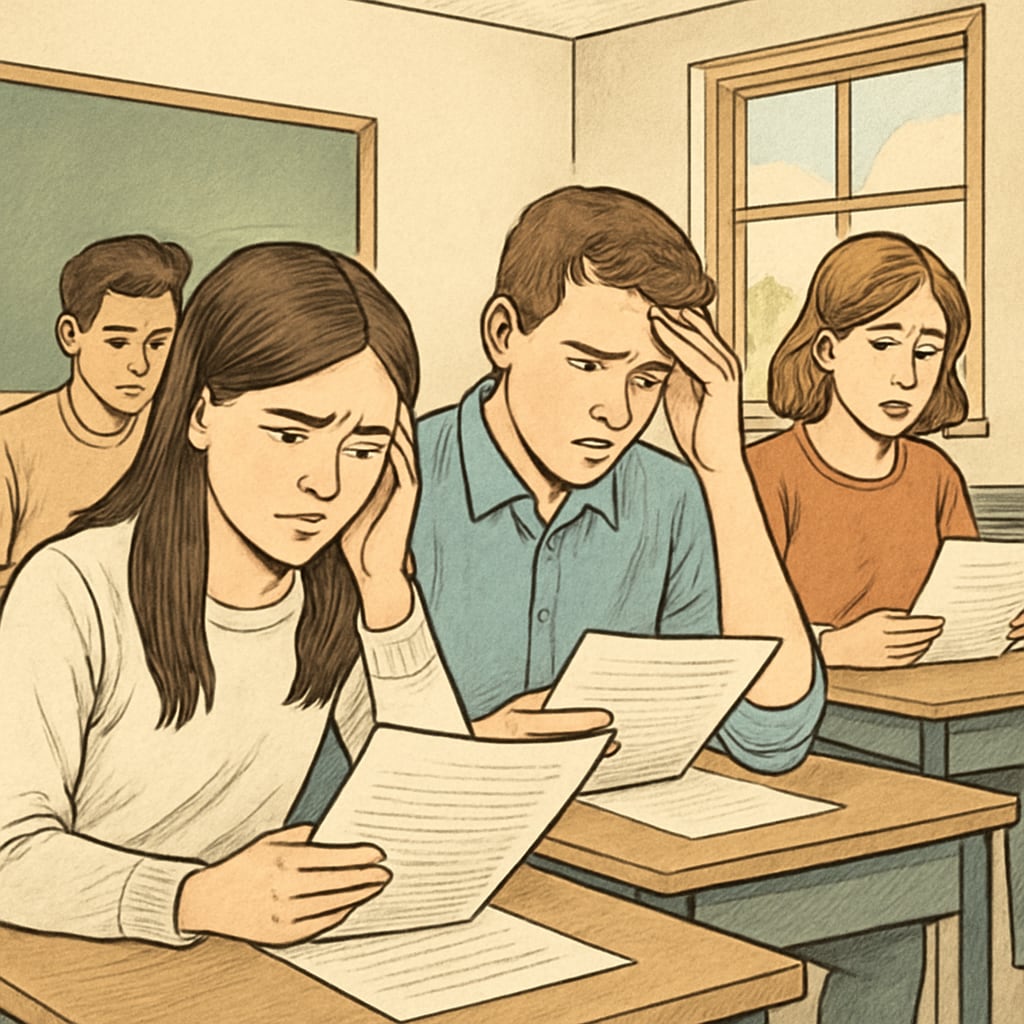For many students in the UK, GCSE results day is a whirlwind of emotions. When the grades don’t align with expectations, it can lead to academic worries and self-doubt. The pressure to meet societal standards, family expectations, and personal goals often amplifies the impact of these results. However, does a disappointing GCSE outcome truly define one’s future? The answer is a resounding no. By reframing the way we perceive success in education, students can overcome setbacks and discover fulfilling paths forward.
Understanding the Emotional Impact of Unexpected GCSE Results
Disappointing GCSE results can be more than just numbers on a paper; they often carry a deep emotional weight. Students may experience feelings of failure, embarrassment, and anxiety about their future prospects. These emotions are not only natural but also common. According to a report by NHS Mental Health Services, academic pressure is one of the leading contributors to teenage mental health challenges in the UK.
Moreover, societal perceptions around academic achievement can exacerbate these feelings. Students are often judged by their grades, creating a narrow definition of success. This can lead to a crisis of self-identity, where individuals begin to equate their worth with their academic performance.

Shifting the Narrative: Redefining Success Beyond Grades
It’s essential to challenge the traditional narrative that academic success is the sole indicator of potential. While GCSE results are important, they are not the only measure of a student’s abilities or worth. Many successful individuals, including entrepreneurs and creatives, have thrived despite setbacks in their academic journeys.
For instance, vocational training, apprenticeships, and alternative qualifications offer diverse routes to success. These options allow students to focus on their interests and strengths, fostering both personal and professional growth. Academic institutions and families must actively promote these pathways to reduce the stigma around non-traditional education routes.

Practical Steps to Move Forward After a Setback
If your GCSE results didn’t meet your expectations, there are several actionable steps to regain confidence and plan your next steps:
- Seek Guidance: Talk to teachers, career advisors, or mentors. They can provide insights into alternative qualifications and career paths.
- Consider Resits: If specific grades are required for your desired career, resitting exams could be a viable option.
- Explore Vocational Routes: Look into apprenticeships, internships, or practical courses that align with your interests and skills.
- Focus on Strengths: Identify areas where you excel and seek opportunities to develop those talents further.
- Practice Resilience: Remember that one setback doesn’t define your entire journey. Use this experience as motivation to prove your capabilities.
Why Diverse Educational Paths Matter
Promoting diverse educational pathways is not just about helping individuals; it’s about transforming society’s approach to education. A system that values multiple forms of learning ensures that every student has the opportunity to thrive. For example, vocational qualifications in fields like technology, healthcare, and engineering are in high demand and can lead to rewarding careers. According to Britannica’s insights on education, embracing diverse learning models fosters innovation and inclusivity.
By recognizing that success comes in many forms, society can help reduce the stigma surrounding academic setbacks. This shift is crucial for creating an environment where students feel empowered to pursue their passions without fear of judgment.
In conclusion, GCSE results are merely one chapter in a student’s educational journey. While they may shape initial opportunities, they do not dictate the entirety of one’s potential. By focusing on resilience, exploring alternative paths, and redefining success, students can overcome academic worries and self-doubt to achieve meaningful and fulfilling lives.
Readability guidance: This article uses short paragraphs, actionable lists, and diverse examples to maintain reader engagement. Transition words like “however,” “for instance,” and “in addition” ensure smooth flow. The emphasis on active voice and practical steps enhances clarity and accessibility.


